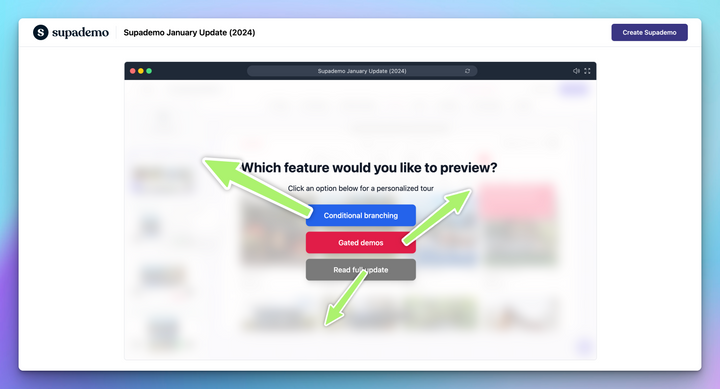In the world of sales, it's not enough for your reps to simply pitch the features of your product. They need to sell the solution. This is where concept selling, also known as conceptual selling, comes into play. Concept selling is a sales methodology that focuses on selling the concept of a solution rather than just the solution itself. By understanding the concept behind a product and aligning it with the buyer's needs and desires, sales reps can effectively close high-value, complex deals.
The Power of Conceptual Selling
Conceptual selling was developed by Robert Miller and Stephen Heiman as a way to improve the success rate of enterprise sales, especially when dealing with multiple decision-makers. The premise of this methodology is that prospects buy into the concept of a product rather than the specific features or benefits. By taking the time to understand the buyer and position the product in terms that resonate with them, sales reps can build long-term relationships that drive revenue and referrals.
Benefits of Conceptual Selling
So why should you consider switching to conceptual selling? There are several key benefits to this sales methodology:
Better conversion rates: Conceptual selling helps sales reps overcome the challenge of understanding a company's needs and positions your product as the solution. This approach can lead to higher conversion rates by appealing to the buyer's desires rather than overwhelming them with facts and figures.
Buyer-focused interactions: Conceptual selling forces reps to prioritize the buyer's needs and personalize every interaction. By taking a consultative approach and building relationships, sales reps can establish themselves as trusted advisors, increasing the likelihood of closing deals and nurturing long-term relationships.
Lasting relationships: Conceptual selling shifts the focus from viewing buyers as mere names on a list to seeing them as individuals with real problems. By positioning themselves as trusted consultants, sales reps can foster trust and become a valuable buyer resource, leading to ongoing business and referrals.
8 Steps to Implement Conceptual Selling Successfully
Now that you understand the benefits of conceptual selling, let's dive into the steps you can take to implement this methodology effectively:
1. Research your buyers
Thorough research is crucial for conceptual selling. Encourage your reps to spend significant time understanding the pain points and motivations of your buyers. By conducting in-depth research before reaching out to prospects and asking the right questions during discovery calls, your reps can gather valuable information to personalize their approach.
2. Align objectives
It's essential to align your sales process with the buyer's buying process. This means taking a consultative approach, building trust, and understanding the decision-making dynamics within the buyer's organization. By identifying key stakeholders and their roles, your reps can navigate the buying process more effectively.
3. Become a consultant
To succeed in conceptual selling, your reps need to position themselves as trusted advisors. This requires focusing on the buyer's needs and putting their interests first. By asking insightful discovery questions and reframing them to elicit detailed responses, your reps can gather the necessary information to tailor their pitch effectively.
4. Listen carefully
Active listening is a vital skill in conceptual selling. Encourage your reps to listen attentively to understand the buyer's pain points and desires. By emphasizing listening over responding, your reps can gather valuable insights and demonstrate their genuine interest in solving the buyer's problems.
5. Control the meeting
Every meeting with a prospect is an opportunity to sell the concept. Your reps should aim to make the most of each meeting by creating a concise and engaging pitch. Keeping the presentation time short allows for more interaction and discussion, enabling your reps to address the buyer's specific needs effectively.
6. Personalize your pitch
One size does not fit all in conceptual selling. Your reps should tailor their pitch to address the buyer's unique pain points and demonstrate how your solution can solve their specific issues. By making the buyer the focus of the pitch and showcasing relevant case studies, your reps can create a personalized and compelling sales message.
7. Differentiate your solution
While personalizing the pitch, it's essential to highlight the unique value your solution offers compared to competitors. Emphasize the contrast between the buyer's current situation and the positive outcomes your product or service can deliver. By showcasing the specific benefits that align with the buyer's desires, your reps can create a perception of value.
8. Move the meeting forward
In today's complex sales landscape, closing a deal often requires multiple interactions. Your reps should ensure that every meeting moves the sales process forward by discussing the next steps. By establishing clear expectations and maintaining momentum, your reps can increase the chances of successfully closing the deal.
The Best Questions for Conceptual Selling
Asking the right questions is crucial for conceptual selling success. The following question types can guide your reps in gathering information, providing insights, and gaining commitment from the prospect:
Confirmation questions: Confirm the information gathered through research and ask about the buyer's budget, decision-making process, and key stakeholders.
New information questions: Uncover the buyer's pain points, previous solutions attempted, and other challenges they may be facing.
Attitude questions: Understand the buyer's openness to new solutions, their timeline for implementation, and any barriers preventing them from moving forward.
Commitment questions: Encourage the buyer to commit by discussing the value they place on a solution, their deadline for finding one, and any additional decision-makers involved.
Basic issue questions: Address objections by asking about the financial impact of the problem, the reasons for not solving it earlier, and any potential barriers to signing a deal.
Sell Conceptually with the Right Tools
Implementing and monitoring the success of conceptual selling requires the right tools. Gong, for example, offers a comprehensive platform to track team performance and identify areas for improvement. Gong Assist even provides suggestions for keeping the sales process moving forward. By leveraging these tools, you can empower your sales team to effectively sell the concept and drive revenue growth.
Conclusion
Conceptual selling is a powerful methodology for closing high-value, complex deals. By focusing on the buyer's needs and desires, your reps can build relationships, position themselves as trusted advisors, and differentiate your solution effectively. Through thorough research, active listening, and personalized pitches, your sales team can succeed in the competitive sales landscape. Embrace the power of conceptual selling and drive your sales success to new heights.




